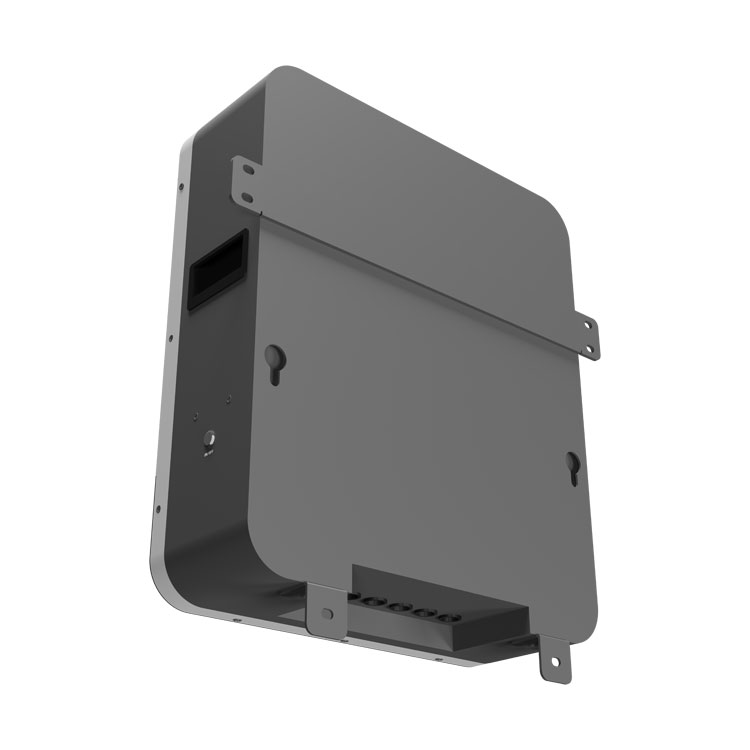The industry needs heavier and more rugged batteries. Industrial tools and equipment are used in remote and isolated areas where self-power is required. Replacing them can also be a daunting task. Industrial batteries should be reliable in terms of power density, as charging huge and heavy batteries takes time and effort.
Industrial lithium-ion batteries are mechanically designed to withstand harsh environments. They consist of high energy density to support all forms of industrial needs and requirements. They typically have a low annual discharge rate, so they can operate and be used for long periods of time.
The increasing use of industrial batteries requires rechargeable lithium-ion batteries. These can operate for up to 20 years or more, have high and fast charge cycles, and should be able to handle varying levels of temperature.
Fast response
Batteries have a tendency to respond quickly. Once you put a new or rechargeable battery in your device, the battery takes no time to start its function. This is one of the main reasons why batteries are most commonly used.
Low maintenance
Low maintenance costs. When the battery runs out of power, you can use a new battery to get the device functional. No hassles with batteries.
Recyclable
Most of the popular batteries in today's market are recyclable. Therefore, using batteries is also an environmentally friendly option. It saves on the overuse of electricity.

Typically, lithium-ion forklift batteries are used in industrial applications. The working principle of industrial lithium batteries is as follows.
When the battery is charged, the lithium cobalt oxide and positively charged electrodes release their lithium ions. They then move through the electrolyte to the negatively charged graphite electrode and stay there. The lithium battery absorbs energy and stores it throughout the process. Meanwhile, during the discharge process, the lithium ions return to the positively charged electrode. The movement of electrons and ions are interrelated.
There are many advantages to using lithium-ion batteries in industries such as
Save space and money
The battery does not require a backup battery and a separate charging chamber. This saves time, money and space.
Long-term stable performance
Lithium-ion batteries save three times the energy of any other conventional battery. This results in consistent voltage, allowing the battery to be discharged without slowing down the machine.
Extended Life Cycle
Lithium-ion batteries can provide up to 5,000 charge and discharge cycles. This is why lithium-ion batteries are the most prevalent in the electric vehicle industry.
Fast and efficient charging
Batteries can be charged to 100% capacity at an amazing rate. There is no requirement for absorption stages. You can charge a lithium-ion battery when there is any work to be done. You can keep the battery uncharged when it is not needed.
Weather Resistant
The batteries work effectively even at low temperatures. Climatic conditions do not impair the discharge rate of these batteries
To get a clear picture of the differences between industrial lithium-ion batteries and other batteries, let's take a look at each one.
Consumer Batteries
Consumer batteries are those generally used in cell phones, laptops, etc. For this type of application, alkaline batteries are ideal. They require relatively low current. Consumer lithium-ion batteries are rechargeable batteries. These batteries are mainly used in laptop computers and cell phones.
Lead-acid batteries
These batteries are most commonly used in the automotive industry to store solar energy. They offer low cost and high current. Twenty-five watt hours per kilogram is their storage capacity.
Nickel-cadmium battery
It is a rechargeable battery that consists of nickel hydroxide and cadmium metal as electrodes.
Sealed maintenance-free batteries
These are mainly used in UPS systems for computer and commercial applications. Since they are sealed, they never emit or emit fumes. Therefore, these can be installed next to the equipment. These batteries can also be installed at home if required. These batteries are maintenance friendly and hassle free. They have a small life span of about 3 to 5 years. The life span of these batteries depends on their charging and discharging cycles.
NiMH batteries
These are rechargeable batteries, often abbreviated as NiMH. these batteries have two to three times the capacity of NiCd batteries. It can have an energy density close to that of lithium-ion batteries.
Nickel-iron batteries
This is a rechargeable battery, abbreviated as NiFe battery. This battery has nickel oxide on the positive plate and iron on the negative plate. These batteries have a long service life. They can withstand overheating, overcharging, overdischarging and short circuits.
All of this defines the applications, uses and benefits of industrial lithium-ion batteries. Before making any further purchases or installations, an in-depth study of the product is a must. The information and facts provided here will certainly help.
